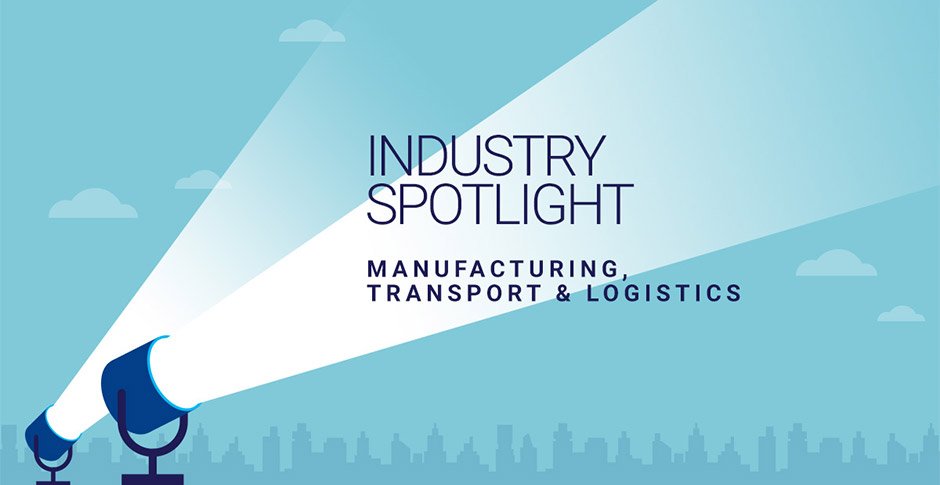Industry Spotlight: Manufacturing, Transport & Logistics
If you think employers in the Manufacturing, Transport and Logistics industry are only interested in your technical skills, think again. Experts say soft skills, such as adaptability and communication, are in high demand in this rapidly evolving industry.
The Manufacturing, Transport and Logistics industry is undergoing significant change. While many companies in the manufacturing supply chain have adapted to a shifting market, growth in demand across transport and logistics means employers are working harder to attract the best talent – and this means more opportunities for you.
The latest data from SEEK Employment Trends shows prospects are up across key areas of transport and logistics. In April, opportunities for rail and maritime transport roles rose by 28% year-on-year while road transport roles were up by 21%.
In April, opportunities for rail and maritime transport roles rose by 28% year-on-year while road transport roles were up by 21%.
These increases reflect a growth in demand across the industry. Data from Australia’s Transport and Logistics Industry Skills Council shows that truck traffic is expected to increase by 50% between 2010 and 2030 and rail freight will almost double. It also projects a 150% increase in containers crossing the country’s wharfs.
Demand for transport
Tim James, Managing Director for Manufacturing & Operations and Logistics at recruitment firm Hays, says large-scale infrastructure projects, such as Melbourne’s Metro Rail tunnel, are creating greater demand for transport and logistics. “There is so much dirt and rubble to be moved for some of these big infrastructure projects that just finding enough trucks can be a challenge,” he says.
He adds that growth in Australia’s e-commerce industry is leading to greater need for parcel delivery services. Opportunities on SEEK for couriers, drivers and postal services rose by 9% year-on-year in April.
Attracting younger talent
Approximately 48% of workers in transport and logistics in Australia are aged 45 years or older and experts say employers must develop creative ways to engage younger talent.
Matthew De Zilva, Head of National Accounts at recruitment firm Adecco, says candidates may expect to see more career path opportunities as companies begin to sharpen up their recruitment strategies.
“Truck drivers in particular tend to be older and attracting younger drivers can be a challenge,” he says. “Employers in this industry may need to work on their employee value proposition to capture the attention of younger workers. Training and clear career path opportunities are two areas to consider.”
Driving change across the industry
Linfox is one company up for the challenge. Linfox Logistics employs 6,500 people across Australia and New Zealand and its operations stretch across 10 countries and a number of industry sectors, including retail, government and defence and fast-moving consumer goods.
Rob Volarich, Group Manager Recruitment and Workforce Planning at Linfox, says training opportunities are an important way of encouraging younger drivers into the business. “The aging workforce presents a challenge for the entire industry,” he says. “Having our own internal recruitment and training functions allows Linfox to employ drivers who may have less experience but are willing to be trained and mentored.”
Greater focus on diversity
While transport and logistics has long been a male-dominated industry, more companies are now seeking a mix of genders. “There has been a growing awareness of the value of gender diversity for some time, however now we’re seeing companies putting words into action,” says James.
Volarich says Linfox is working to encourage greater diversity among its workforce. “We have many women working in operational roles throughout the organisation and are also proud of the number women who occupy senior roles within the business. We are currently working on a strategy that will attract women into more traditional supply chain roles, such as driving and warehousing roles.”
In addition to advertising roles on SEEK, Volarich explains the company provides career progression opportunities by advertising roles internally. “Our latest round of senior leadership announcements all related to internal candidates who have come up through the company,” he says.
Movement in manufacturing
While manufacturing in Australia has been contracting for some time, particularly in automotive industry, many smaller manufacturers within the supply chain have adapted to the changing market. This may represent opportunities for candidates.
“Many of the agile SMEs who were producing components for the automotive industry are now producing parts for other industries, such as infrastructure, construction, defence and medical,” he explains. “Companies are looking for candidates who can demonstrate an ability to adapt.”
De Zilva adds that some areas of manufacturing are projected to grow. “Manufacturing within the medical sector is doing well,” he says. “Food manufacturing is also looking good and there is a strong focus on quality control.”
Becoming a candidate of choice
While technical skills are highly prized within Manufacturing, Transport and Logistics, candidates are also expected to demonstrate soft skills. “Candidates should be able to show an ability to collaborate,” says De Zilva.
At Linfox, the best candidates are those who are aligned with the company’s values. “We look for people who demonstrate our ‘LIFT’ values of loyalty, integrity, fairness and trust,” says Volarich.
If you have the right blend of technical and soft skills, including an ability to adapt to change, a rewarding career in this rapidly evolving industry awaits you.
